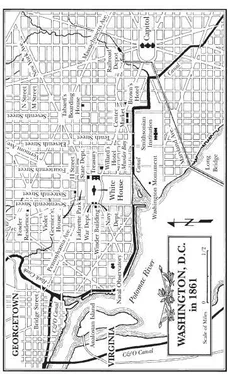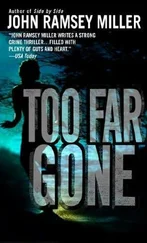John Miller - The First Assassin
Здесь есть возможность читать онлайн «John Miller - The First Assassin» весь текст электронной книги совершенно бесплатно (целиком полную версию без сокращений). В некоторых случаях можно слушать аудио, скачать через торрент в формате fb2 и присутствует краткое содержание. Жанр: Исторический детектив, на английском языке. Описание произведения, (предисловие) а так же отзывы посетителей доступны на портале библиотеки ЛибКат.
- Название:The First Assassin
- Автор:
- Жанр:
- Год:неизвестен
- ISBN:нет данных
- Рейтинг книги:3 / 5. Голосов: 1
-
Избранное:Добавить в избранное
- Отзывы:
-
Ваша оценка:
- 60
- 1
- 2
- 3
- 4
- 5
The First Assassin: краткое содержание, описание и аннотация
Предлагаем к чтению аннотацию, описание, краткое содержание или предисловие (зависит от того, что написал сам автор книги «The First Assassin»). Если вы не нашли необходимую информацию о книге — напишите в комментариях, мы постараемся отыскать её.
The First Assassin — читать онлайн бесплатно полную книгу (весь текст) целиком
Ниже представлен текст книги, разбитый по страницам. Система сохранения места последней прочитанной страницы, позволяет с удобством читать онлайн бесплатно книгу «The First Assassin», без необходимости каждый раз заново искать на чём Вы остановились. Поставьте закладку, и сможете в любой момент перейти на страницу, на которой закончили чтение.
Интервал:
Закладка:
“Mr. Bennett,” called Lucius. “Dinner is ready for you and Mr. Hughes.”
“Well, Mr. Hughes, shall we venture in?” asked Bennett.
“Let’s do that,” said Hughes. He made eye contact one more time with Portia and winked at her. She looked away. Then Hughes locked arms with Bennett and helped the old man climb the steps of his home. At the top, he turned and spoke. “Mr. Tate, please be good enough to see that my carriage gets off.” He went inside without waiting for a response.
Tate began shouting orders again. His first one went to the huge slave near Portia. “Get a move on, Big Joe. Start unloading that carriage.” The slaves who had halted their work to listen to Bennett returned to their labors. Portia was the only one not to budge. It was almost as if she did not hear Tate. She just stared at the ground.
Lucius saw her. After Bennett and Hughes entered the house, he moved down the steps and touched her chin. She looked up at her grandfather.
“What’s the matter, Portia?”
“It’s nothin’. I just been a little tired.”
“I hope it ain’t more than that.” Lucius slipped into an informal dialect that he tried to avoid around Bennett.
“Don’t worry about me. I’ll be fine.”
She took a step toward the house, where she knew she was needed. But Lucius clasped her elbow. She stopped and gave him a questioning look.
“Portia, we need to talk about something very important.”
Lucius glanced quickly in all directions to make sure they could not be overheard. Then he leaned forward. “Meet me by the stables later tonight, after Mr. Bennett has gone to bed.”
A woman seated beside a window was the first to see it. “There’s a secession flag flying over the Virginia capitol!” she said. This prompted a general commotion on the train. Passengers scrambled for a view. Atop a hill sat a white building that was designed by Thomas Jefferson and looked like a Roman temple. Above it flew a red, white, and blue flag, but not the federal one. In the fading daylight, they could see that it had three stripes, with a handful of stars displayed on a blue field.
“The stars and bars!” shouted a voice from somewhere within the train. The formerly subdued car burst into cheers. Had Virginia really seceded? What else could it mean? Just about everybody on board was thrilled at the prospect. This would give the Confederacy a fighting chance. The silence of nervous anticipation soon took over as the train slowed down on a bridge over the James River and then stopped at a depot on the other side of the water.
Within seconds it was confirmed: that very day, Virginia had voted to leave the Union. Strangers who had not spoken to each other on the ride now embraced. Men made martial boasts, and a group of women near the front cried with joy. “We shall have war now,” one of them announced amid her own laughter and tears, “if Lincoln is not a coward.” Her equally ecstatic friend replied, “But he is a coward! He is a coward!”
In the very last row of the car, a man with a hat pulled down to cover his face did not move. Mazorca pretended to sleep.
Corporal William Clark tried to suppress a yawn and failed. It had been a long day, sitting in the foyer of Brown’s Hotel and reading the same newspaper over and over again. It was not even a newspaper he wanted to read. The National Intelligencer was Washington’s leading daily for Southern sympathizers. Clark, a native of Maine, certainly felt no sympathy. He would have preferred not to hide this fact, but his current assignment called on him to wear something other than the blue dress of a federal solider. Ordinary street clothes were his uniform now. The Intelligencer was a part of his disguise as well. It helped him blend in and perform his job, which was to loiter around the lobby of Brown’s, observe the comings and goings of its patrons, and listen to their conversations. If any of them acted strangely or said something interesting, he was under orders to report the information to Colonel Rook.
Like the other hotels along Pennsylvania Avenue, Brown’s was big and ugly. Southerners from around the city congregated in its lobby, and many of those from out of town slept under its roof. Located at Sixth Street, it was convenient to the Capitol and therefore a favorite of Southern politicians. When Congress was in session, dozens of them stayed there. Even when it was not, the hotel’s lobby remained a favorite meeting place and watering hole.
It had become even more popular following a scandal at its main competitor, the National, which sat on the other side of Sixth Street. Four years earlier, around the time of President Buchanan’s inauguration, scores of people fell sick with what became known as “National Hotel disease.” One of them was Buchanan himself, who was bedridden for the first several weeks of his presidency. Many wild-eyed partisans were convinced that National Hotel disease was not a disease at all, but rather a poisoning-a sinister plot, hatched by abolitionists, to contaminate the food at a place frequented by Southerners and their political allies. The real source of the problem was most likely a sewage backup that had flooded the kitchen, but flamboyant conspiracy theories rarely lacked for believers, especially in a Washington divided by regional loyalties and mutual suspicion. Although the National was forced to shut down briefly, it had recently begun to regain its former popularity. For now, however, Brown’s Hotel was on top.
Clark had been coming to Brown’s every day for a week, usually arriving in the early afternoon and staying well into the evening. He suspected that a handful of regulars began to notice him, but they probably regarded him as merely another transient who would vanish just as quickly as he had appeared. None of the hotel’s employees seemed to mind him-each day, he ordered a couple of mint juleps and tipped well enough to keep them happy. The mint juleps, Clark had decided, were the only thing he liked about Brown’s.
Business at the hotel had slowed down recently, as many Southerners had packed their bags and left the city. Yet the lobby remained fairly busy, and Clark had eavesdropped on scores of discussions. Much of the talk was about politics. How would the Lincoln administration respond to the surrender of Sumter? Would more states secede? Conversation often turned toward the fate of Washington itself and the predicament the president would face if Maryland decided to follow Virginia in quitting the Union. And then there was the military question: could the city actually defend itself against an enemy force? The consensus was that Washington would fall, at least without additional troops from the North.
Clark listened to all this chatter, recognizing that most of it was a combination of uninformed speculation and wishful thinking, often fueled by alcohol. Hardly an hour went by without hearing someone condemn Lincoln, but these were expressions of frustration and loathing rather than actual threats. There was talk from time to time about plots against the president. One day it was a plan to kidnap Lincoln. The next it was a proposal to put him on trial in Alabama. Clark understood that in both cases he was hearing rumor and bluster rather than gaining actual information, but he dutifully passed on what he heard to Rook.
After flipping through the National Intelligencer for what seemed like the hundredth time, Clark considered calling it a night. Then he noticed a group of men come into the lobby from their rooms. They had caught his attention a few hours earlier, when they showed up at the hotel covered in dust. Clark had watched them negotiate for several rooms. They aroused his interest because these days the hotel’s clients were much more likely to be checking out than checking in. They were also remarkable for their filth. They looked as if they had gone for weeks without bathing or changing clothes.
Читать дальшеИнтервал:
Закладка:
Похожие книги на «The First Assassin»
Представляем Вашему вниманию похожие книги на «The First Assassin» списком для выбора. Мы отобрали схожую по названию и смыслу литературу в надежде предоставить читателям больше вариантов отыскать новые, интересные, ещё непрочитанные произведения.
Обсуждение, отзывы о книге «The First Assassin» и просто собственные мнения читателей. Оставьте ваши комментарии, напишите, что Вы думаете о произведении, его смысле или главных героях. Укажите что конкретно понравилось, а что нет, и почему Вы так считаете.












